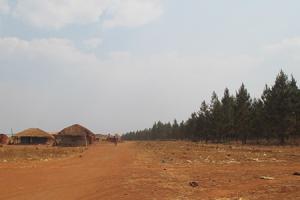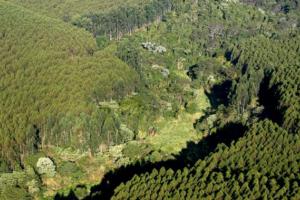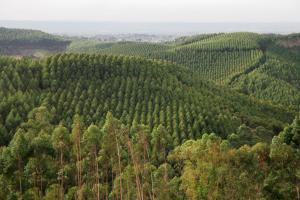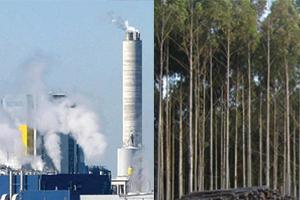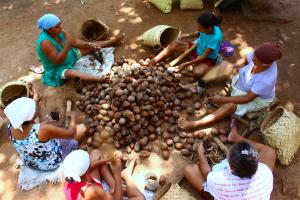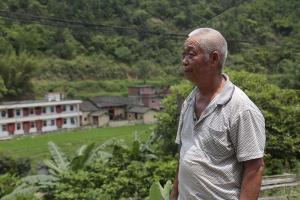Pulp and Paper
Large-scale tree monocultures to produce pulp and paper, along with the infrastructure and pulp mills that come with these plantations, have been expanding onto communities’ fertile lands. They have destroyed forests and grasslands, especially in Latin America, Asia and Southern Africa. The species used are fast-growing and not native to these countries. They include varieties of eucalyptus, acacia and pine trees.
On the frontlines of the promotion of monoculture tree plantations as a solution to the climate crisis, families affected by tree plantations in Mozambique, Tanzania and Brazil, have once again denounced the serious impacts on their lives and the environment.
A key tactic for the giant pulp producer, Suzano S.A, to keep expanding its industrial eucalyptus plantations in Brazil, is to market itself as a company that practices “conservation” and “restoration.” This conceals its disastrous track record related to forest and forest-dwelling populations.
After more than 50 years of struggle by peasant communities who have faced all kinds of environmental and social destruction, the highest court of Cauca Valley has ruled against the industrial plantation company, Smurfit Kappa Cartón Colombia.
The construction of the Suzano Pulp and Paper mill—along with nearby highways, the constant transport of wood, and the massive influx of workers—has brought a lot of devastation to communities. This is the testimony of an activist who is fighting for the territory.
As a condition to install its second pulp mill, the company UPM demanded that the Uruguayan state build a new railroad from the site where UPM plans to locate its mill to the port. The government would cover the costs of these infrastructure projects at the service of UPM.
